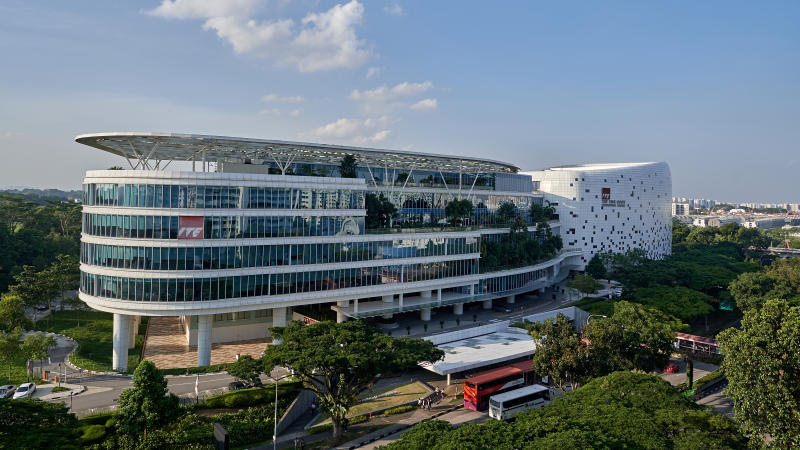10 new work-study diplomas from April next year for ITE graduates
Sign up now: Get tips on how to help your child succeed

The Institute of Technical Education will be offering 10 new Work-Learn Technical Diplomas with places for about 350 trainees.
PHOTO: LIN ZHAOWEI FOR THE STRAITS TIMES
Follow topic:
SINGAPORE - Graduates from the Institute of Technical Education (ITE) will have more avenues to take up a diploma that will allow them to work and study at the same time.
The institution will be offering 10 new Work-Learn Technical Diplomas (WLTD) from April next year with places for about 350 trainees.
Students in the courses, which cut across different areas like port automation technology, microelectronics and hotel and restaurant management, will spend 70 per cent of curriculum time training on the job.
The programmes, which are developed in partnership with employers to ensure that they are industry-relevant, will last between 2½ and three years.
ITE chief executive Low Khah Gek announced the new Work-Learn Technical Diplomas on Friday (Nov 2) at a signing ceremony for 113 companies and industry partners.
ITE first launched four such diplomas in April this year to provide a skills-based avenue for their graduates to upgrade themselves and build their careers.
It currently has more than 100 trainees training in 33 companies.
Ms Low said the Work-Learn Technical Diploma pathway is another option for ITE graduates, beyond the full-time and part-time diploma programmes.
She said ITE will continue to work with industry partners to come up with more Work-Learn Technical Diplomas.
It aims to provide 7 per cent of each ITE cohort with places in such diploma programmes by 2022. If demand is strong, this figure could eventually go up to 10 per cent, she added.
Registration for the programmes starts on Monday via the ITE website.
In a speech at Friday's ceremony, Education Minister Ong Ye Kung said some ITE graduates have told him during dialogues that they are attracted to the new work-study diplomas over polytechnic diplomas because they like hands-on work and learning on the job.
Yet they still ask him if they can go on to university, he said.
"Taking Work-Learn Technical Diploma is to learn skills especially from the employers and you go on a different path," he said.
But he also noted that it is still possible for them to get a degree, with the newer universities such as the Singapore Institute of Technology and Singapore University of Social Sciences, where learning is more applied and relevant to work skills.
"Beyond looking at academic grades, academic achievements, (the applied universities) also look at your work experience and your skills, and then (are) able to take in students on that basis.
"So I think the doors are also opening wider and wider. We are not lowering standards, we are keeping high standards, (not) measured by one yardstick, but by different standards," he said.
Ms Low also thanked ITE's industry partners for their training and expertise.
"The industry are ITE's training partners - we develop the curriculum together, we determine the skills and standards together, we also deliver the training together," she said.
"This approach benefits both the industries and the ITE graduates. Industries are assured of having workers equipped with the relevant skills while ITE graduates have an upgrading pathway that suits their learning style as well as enable them to achieve a diploma and career progression."

